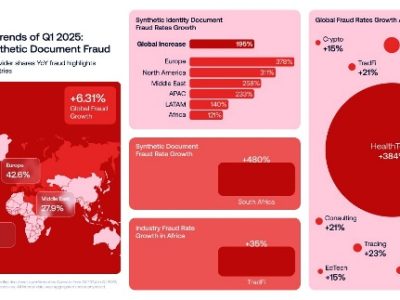By Knowhow Media Intelligence
They were not here before. Now they are here. Take a quick look at this list: VAS2NET, Sproxil, iRoking, Jumia, Konga, Justinweb, ICT Convergence Limited, rlg, Privateproperty.com.ng, Henox ICT Ltd, Webmedia Concepts, and then some of the old, big players pumping up on novel services modelled on their legacy structures such as ChannelTV, GTBank, MTN Nigeria, Glo, Omatek, Airtel, Etisalat,WeCyclers, Chachangi, Aero and Arik.
Things are certainly no longer the way they seemed. The market has transformed. Market dynamics, progressive regulation – liberalisation, deregulation – technology trends – digitalisation plus expanding broadband frontiers, and consumers rising sophistication, has ensured the rise and rise of convergence. Everything has converged: technology, market thinkings and corporate pursuits.
There is a sense of complexity and irrational urgency that puts legacy players and regulators on the spot and new players to become the new definers of where the market is headed. Jumia and Konga are bringing retailing to homes and offices of prospective consumers. GTbank is queuing behind the explosive growth of social networking to reconfigure traditional banking and bring services to a marketplace that exists within the circle of social media. Chanchangi is making air travel a simple click business that cuts off travel agents and directly brings airline and passenger to interact on a mobile or web space.
In the last few months, ChannelsTV has built extensive local and global popularity beyond the fringe and the regulatory jurisdictions that define it as a mere community broadcast station. What else has not changed? To authenticate if a drug or even a mattress is original or fake: Use the Sproxil platform. An SMS based service that allows consumers to directly authenticate if a product is genuine from the server of the products makers. The Chinese ZTE in partnership with the Nigerian government is providing the Public Security Communications System (NPSS) project to tackle insecurity in the country. The project offers public security system which includes the deployment of 2,000 closed circuit television (CCTV) cameras in Abuja and Lagos for e-surveillance. The NPSS will support 1.5 million subscriber lines operating through two main switch centres in Abuja and Lagos, 12 base station controllers and 675 base transmitting station sites that will provide the internet protocol cloud for the various applications to which the project is applied, said Engr. Alexander N. Opaluwa, ICT Operation Solution & Business Consultant for ZTE Nigeria Limited who made a presentation on behalf of ZTE at WACC 2013.
Globally respected PwC saw all these coming when it predicted months back in a slim report: “In the world of convergence, technology, content, and distribution are converging at a speed never before seen. Consumers are now empowered by new technology and distribution platforms to engage with media and advertising in entirely new ways. Convergence is going to fundamentally redraw today’s business map, fuelling a power shift towards consumers that verges on social revolution.”
Another report accurately notes: Convergence has opened both new opportunities and challenges. Businesses are harnessing untapped potentials to bring new services from once under utilise resources; new comers are taking advantage of deregulation and open marker approach to expand the frontiers of their services into areas once traditionally under other regulatory regime, the result is an overlaps of products and services that challenges regulations or if you like, traditional regulation….” But convergence depends on availability of bandwidth. Multiple services reflects capacity of existing broadband, said Head of Glo-1, Manoj Manicketh while making his presentation on how Glo-1 is helping to drive convergence. With government’s policy geared towards expanding affordable access to broadband, Manicketh predicts a flood of converged services that would deepen the sophistication of the market. “Glo-1 has invested massively in anticipation of this growth,” said Manicketh.
At the 6th West Africa Convergence Conference (WACC 2013) organized by Lagos based KnowHow Media International, publishers of IT EdgeNews magazine and www.itedgenews.com all these things came to occupy the fulcrum of discussions by governments, regulators, legislators, government, operators and other stakeholders. More revealing is the army of sector’s new comers slowly and steadily redefining the marketplace. Throwing up new challenges for both regulators and legacy operators. At WACC 2013, one thing was certain: The new players extremely visible at WACC 2013 constitute the deciding factor for where the sector is headed. “These are the future of the industry. They thrive on innovation not patronage by governments or public sector contracts. They understudy the market and know how to drive demands and respond to market needs. They use technology to create services like never before and set the pace through innovation and creativity for both consumers and competitors,” said Chairman of Baobab Think Limited, Dr Sola Afolabi. WACC 2013 theme was ‘Emerging Trends and New Values in a Converged Market.’
In the views of Director General of National Information Technology Development Agency, (NITDA), Dr. Ashiru Daura who was represented at the convergence conference by the agency’s Deputy Director, Corporate Strategy and Research, Dr. Vincent Olatunji, convergence of technologies has brought about regulatory risks and challenges given the evolving technical, operational and administrative imperatives that the new atmosphere of the 21st century hoists to the global communities.
To him, convergence raises concerns on intellectual property rights because of the need to integrate and interface with existing technologies. Also, looking at the evolution of digital broadcasting, Hon. Ibrahim Gusau, Chairman, House Committee on ICT, advised that since convergence has removed the borders between broadcasting and telephony; there should be convergence also in the regulatory environment. “I believe regulatory challenges can be sorted easily when there is convergence of regulatory bodies too,” he added.
One writer didn’t mince words years back. He wrote: “Convergence services, such as VoIP, IPTV, Mobile TV, Smart TV, etc., will replace the old technologies and is a threat to the current service providers. IP-based convergence is inevitable and will result in new service and new demand in the market.” Robert E. Babe of Media and Information Studies, University of Western Ontario captures it like this: “Convergence and the information highway, like free trade, are moving power from government to business, from domestic to transnational enterprises, from labour to capital, from consumers and producers of public services to consumers and producers of private commodities.”
Once the focus was the transmission pipes and it was easy to have one regulator per pipe. But convergence have erased all that bringing once separated regulatory institutions closely and neatly tied into each other because services are no longer separated. Consider this writer’s comment: “Convergence is an emerging phenomenon, the conventional one service via one network concept is changing into multiple services via multiple networks, telephone companies can provide data/internet access and internet phone services and much more ….” In convergence, pipes no longer matter. What matters is content whether mobile or web.
Mobile contents cut across all business ecosystems ranging from mobile financial services, enterprise software, enterprise mobility, and software development services. According to Mr. Ayo Stuffman, MD/CEO, VAS2NET, one of Nigeria’s foremost mobile content companies, Nigeria is a big market and the larger part of VAS2NET revenue comes from Nigeria as compared to other African countries like the Gambia, Ghana which have three million and twenty-five million plus population, respectively. Content and content proprietary is increasingly becoming the focus. Take, iRoking, it is the largest online distributor of Nollywood content and has helped to extend the reach of the Nigerian movie content beyond the imagination of the local producers in the burgeoning film industry called Nollywood, touted as the globe’s biggest after Hollywood and Bollywood.
While it is inconceivable to determine accurately how convergence will alter the industry in the next few years, one thing is sure, transmission infrastructures are no longer as important as content that can be delivered via such pipes. Chief Executive of UK based Red Bee Media, Bill Patrizi, captures this thus:
“We have spent a lot of time thinking about the future of our industry and what it will look like in 2020. And unfortunately, nobody can accurately predict what changes lie ahead and what impact they will have. For example, five years ago, how many people would have predicted the launch of tablet devices or imagined the dramatic impact they’ve had on consumer experiences in just two years? If we look ahead at what’s happening in the more immediate future, it’s the impact of convergence that really excites me and how technology is irreversibly changing the way consumers interact and engage with media.
“For example, the opportunities afforded to the industry and consumers alike by multiple screens; personalization; greater interactivity with developments such as voice and gesture control; not to mention the innovation that continues to emerge from the likes of Apple, Google, Amazon, Facebook and other new entrants that we have not yet imagined. Also the growth opportunities for small entrepreneurial firms like Red Bee Media are tremendous since the market characteristics for this converged world are very unpredictable and malleable….”
One company is proving Patrizi right in Nigeria. Spatial Technology Limited, one of Nigeria’s foremost innovative mapping and GIS solution providers, which won West Africa Convergence Leader award at the 6th West Africa Convergence Forum, is implementing a map based solution to support a multibillion Naira branch expansion and optimization project for United Bank of Africa (UBA) Plc.
Under this pilot project starting with Lagos and expected to spread to other parts of Nigeria, Spatial Technology Limited will provide the digital street map data of Lagos covering Lagos metropolis, Ikorodu, Epe, Badagry and Sango Otta. Spatial Technology Limited will also map the locations of all existing UBA’s branches and ATMs including those of other banks that UBA recently acquired as well as mapping the locations of all branches of UBA’s five most important competitors throughout Lagos State and Sango Ota, Ibafo and Mowe. The contract also covers the mapping of several Points of Interest (POIs) that were considered important when choosing an optimum location for a new UBA branch.
This wouldn’t have been possible but for the convergence of technology. For companies and consumers, the future of service and products rests on how all stakeholders are able to respond to the dynamics of the industry. That change-dynamics is Convergence as the communiqué of the WACC 2013 stressed.
Communiqué of the Sixth West Africa Convergence Conference (WACC 2013)
Delegates to the Sixth West Africa Convergence Conference (WACC 2013) converged November 15, 2013 at the Sheraton Hotel & Towers, Ikeja, Lagos State, Nigeria to discuss the theme: Emerging Trends and New Values in a Converged Market. The event was attended by industry stakeholders including heads of regulatory agencies, top level government officials, telco operators and other service operators, Original Equipment Manufacturers, financial services providers with the country’s banker: the CBN, state and federal legislators, IT entrepreneurs, and professional bodies including the NCS, ATCON, ITAN, and CPN, educational bodies including the JAMB. WACC 2013 was organized under the auspices of Knowhow Media International (KMI) with the support of regulatory agencies and private sector companies. The conference speakers defined what convergence stands for and all the speakers surmised that convergence is the merging of the Information Technologies (IT) and Communications Technologies (CT) in such a way that a single device serves as the platform for accessing the various media and services (voice, data, Internet, video) previously requiring different platforms and devices. And that the beauty of these converged services: Internet, Data, Voice and Video all coming on the same platform is the econometrics of lower subscription cost and lower cost of acquisition of the CPEs (devices). Similarly, operators are also benefitting from the economics of scale in the costs of operations since converged technologies enables different services to be deployed on single equipment instead of using different equipment for various services.
The Conference noted that:
- Technology convergence is having and would continue to make impacts on the way people live and the way the society interacts and how it will continue to evolve within the various facets of societal values.
- Convergence has been evolving with increasing efficiency in the management of products and services making positive value propositions to the users and the society with its concomitant influence on economy and governance
- That convergence of technologies has brought about regulatory risks and challenges given the evolving technical, operational and administrative imperatives that the new atmosphere of the 21st century hoists on the global communities
- The evolution of converged technologies and relationships have also created the challenges and complexities of intellectual property rights and the management of issues arising from the proprietary concerns because of the need to integrate and interface existing technologies
- Convergence has increased opportunities for new entrants to come into the market at lower entry prices thus increasing new windows for upstarts to have access without the fear of being exempted on account of dominants players’ pricing threat.
- Convergence provides opportunity for creativity and innovation to be seamlessly achieved without having to invest afresh in Research and Development initiatives because it is largely depended on collaborations in order to be competitive
- Though telecoms services evolved with the voice but the declining revenue of the voice services has compelled operators to shift focus to data services. And now, the world is becoming more dynamic with the explosion of data services following the increasing availability of 3G, 4G and LTE
- That developing nations like Nigeria must embrace technological transfer as a fulcrum for its repositioning for competitiveness in the new emerging global knowledge economies
- Developing nations do not need to re-invent the wheel because the opportunity to imitate technologies and adapt the existing technologies in a way that shows local imperatives and peculiar national values.
- Content is very key in driving the converged platforms and the capacity to monetize contents will be depended on the clear understanding of the mobile content paradigms which can be classified into three key components: premium content i.e. Nollywood movies, games and caller tunes 2. Amateur content i.e. all users of Android enabled devices 3. Reference Content which cannot be monetized i.e. Google map
- That monetizing ideas require being very innovative and ensuring that the ideas have unique appeal to the operators on whose platforms the ideas will be implemented. It is also imperative that there has to be a clear understanding of the market and the demand profile must be succinctly defined.
- A strong call for innovators to patent their ideas in order to protect their innovations and creativities as a way of preserving the value flowing from the growing market potentials and market worth. Significantly, it is of note that operators in Nigeria currently gross about one billion Naira monthly from content services. The conference observed that once an idea is properly packaged the operators will be willing to partner with the content owners.
- The youth population in Nigeria should be strongly encouraged to participate in the evolving mobile content ecosystem by maximizing their creative and innovative acumen which the mobile operators also require to increase their revenue base
- Nigeria has the potential to grow e-commerce and m-commerce exploring the population potentials and its expanding digital natives (netizens). Operators in Nigeria need to give safe platform to their customers who desire pleasant shopping experience and protection from online scammers.
- E-commerce and m-commerce could experience exponential growth if stakeholders ensure watertight security, reliable and timely delivery of services and goods, robust payment platforms as well as processes devoid of clumsiness, fraud and system failures. And by creating such robust processes end to end e-commerce and m-commerce will fully evolve in Nigeria.
- That ICT should be integrated into the learning and teaching processes in Nigeria in order to fast track the transformation of the human capital development to the level where the graduates of our educational institutions can compare favour ably with their peers globally.
- ICT adoption in the education systems in Nigeria should be adapted to accommodate the various inadequacies in skills and infrastructure gaps. Infrastructure and curriculum must be integrated, time tested and accompanied with periodic review in order to continually reflect the dynamic education environment constantly evolving.
- Content is very strategic in ICT in education and government must develop strategic policy for dynamic improvement from time to time. Stakeholders must agree on the contents in order to leapfrog into the information age
- The concept of Public Private Partnership (PPP) should be embraced and well developed because government alone cannot shoulder the responsibility of qualitative and quantitative education driven by ICTs
- Teaching environment should be transformed to learners centred
- Few countries have comprehensive security systems taking advantage of ICTs to man Public Security Systems (PSS) hence the high rate of violent crimes around the world. It is the responsibility of government among others to facilitate public safety and secured environment
- Convergence cannot happen except there is effective and efficient availability of bandwidth. Operators must ensure the availability of high quality and quantity bandwidth to drive convergence because Nigerians have already developed strong appetite for bandwidth.
- That the convergence of technology has made it possible to detect fake and adulterated products and thus making positive impacts on the life expectancy ratio in the society.
- Appropriate legislation is key in moving the ICT industry forward. New legislations to take care of the dynamics of the ICT environment are being worked on by the National Assembly
- It will be illegal for any Ministry, Department and Agency (MDA) of government not to use .gov.ng after August 2014
- Unwillingness to change and often time, too, most decision makes do not have appropriate understanding of ICTs as an enabler of efficient processes and good governance practices hence the high budgetary imperatives for implementing certain requirements and tools suffer rejections
- Non enforcement of, and in some cases non compliance with existing ICT policies
- Weak economic infrastructure, particularly power, will continue to impede the national growth and relevance of the nation in the global arena
- Convergence has resulted in increased capacity in the broadcast industry and the efficient management of spectrum resources with the benefits making strong impacts in four areas: Production & Post Production, Distribution Technologies, Storage facilities and Display Devices
- Deployment of technologies is not an end in itself but a means to an end. And significantly, technologies must be employed and deployed in the right context and value proposition for the people so that it does not appear as a tool that deprives the citizens the right connection between government and the governed
The Delegates thus resolved:
- That OEMs need to build capacities in order to build devices that incorporate multiple functions in order to remain competitive
- To encourage the patronage of locally produced devices so that the local industry can grow and be competitive in the global markets
- It is imperative for businesses to embrace cloud computing in order to be vibrant and dynamic in tandem with the evolving smart environment of the business processes
- Governments must take the issues of security seriously by adopting the converged capabilities of IT and CT to reduce the incidences and tendencies of violent crimes, terrorism and criminalities generally without invading the privacy of its citizens
- Government should encourage the mandatory adoption of SMS solution to determine the status of the products i.e. drugs so that threats to people, businesses and national image can be curtailed
- Stakeholders should always endeavour to initiate bills and also participate in the processes of enacting law that impact on the industry instead of living this solely to the elected representatives in the parliament
- To commend this session of the National Assembly for the deliberate attention being given to the ICT industry with the creation of a dedicated committee to oversight issues within the ICT purview
- Commended government for compelling MDAs on the usage of locally manufactured ICT products
- Gave kudos to the government on the National ICT Policy and National Broadband Development Plan but said that government must put in place structure that will fast tract the implementation of the National development Agenda in the ICT through adequate funding and the institution of appropriate legal and regulatory frameworks
- Broadcasters should take advantage of the converged technologies to improve on the quality of their works to ensure quality control and the control of contents
- Registration of citizens and the creation of biometric database is key to providing good governance for the citizens. But it is important to create requisite awareness and the streamline of the various biometrics capturing requests by the various agencies and departments of government
- Relevant stakeholders should review the processes and procedures for improving on the cashless and cashlite policy by fine tuning the observed inadequacies impeding the success of the policy, particularly the current merchant apathy to the PoS, connectivity challenges and the worries of the technophobes
- In deploying ICT for education, it must go beyond being a tool but a technology for transforming education into qualitative and quantitative knowledge building system
- Curriculum for the schools should be developed and redesigned to reflect the needs of the various culture and content imperatives of the population.
- Teachers must constantly update their skills in the rapidly exploding and evolving ICT space and the need for teachers to upgrade their skills under the regulatory supervision to ensure strict compliance with standards in the usage of ICT in education
- Resource centres should be established at all institutions of learning for hands-on experiences so that creative minds of the youths can be triggered by persistent engagement and interaction with the tools and devices in a way that Research and Development (R&D) can evolve among the students because convergence has high impact on the future of generation next.
Award Ceremony: Recognition of the West Africa top 20 Convergence Leaders 1. Data Sciences 2. Programos Software Group 3. Omatek Computers Plc 4. Precise Financial Systems 5. Integrated Corporate Services 6. Rlg Communications 7. Computer Warehouse Group 8. Chanchangi Airlines 9. Phase3 Telecom 10. Channels Television 11.Spatial Technologies 12. Medallion Communications Limited
Signed Dr. Sola Afolabi (Chairman of Sessions) Engr Greg Gbadamosi, Chairman WACC 2013 Committee Segun Ohi Oruame for Organisers and Support Sponsors.





























